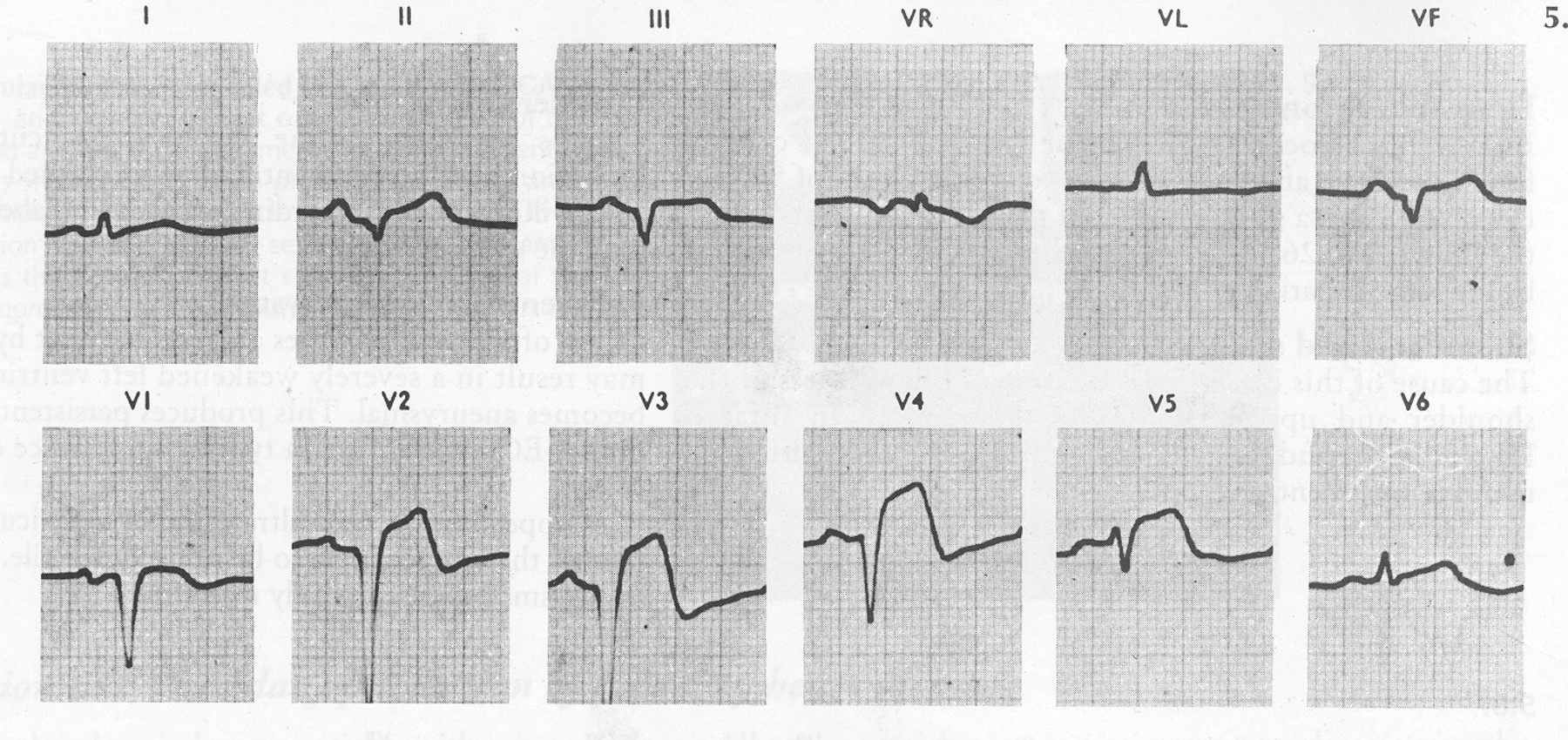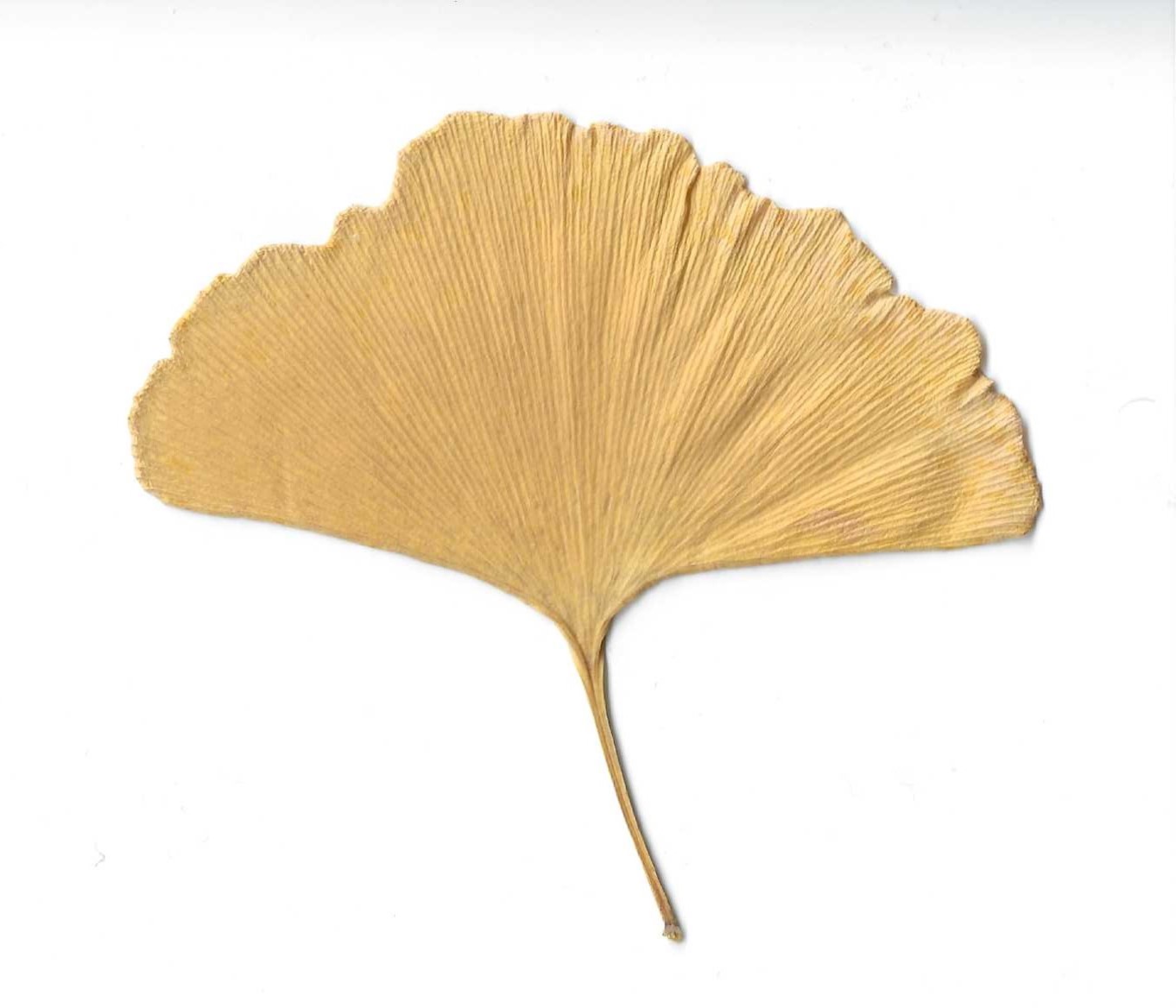Medical Mystery of the Week
You are on your emergency room elective and asked to examine a 62-year-old man
who was just admitted with severe (grade 8) precordial chest pain of three hours duration.
He has a history of hypertension, hypercholesterolemia, and type II diabetes melitus.
Your cardiac exam is normal except for a barely preceptable double impulse felt
medial to the left cardiac border. The patient's admitting EKG is shown below.
While you are dictating the results of your history and physical examination,
the patient's condition suddenly worsens. You rush to the bedside and find that his
systolic blood pressure is 100 mm Hg during inspiration and 120 mm Hg during expration.
DIAGNOSIS: Pulsus paradoxus in a patient with an acute anterior myocardial infarction
complicated by right ventricular rupture and tamponade.
Pulsus paradoxus is defined as a greater than 10mm Hg fall in systolic blood
pressure during inspiration.
Pulsus paradoxus is a misnormer in that it is not paradoxical but rather an
accentuation of the normal fall in systolic blood pressure that occurs during inspiration.
Normally, inspiratory expansion of the thorax decreases intrathoracic pressure, increases
right ventricular return, and delays/diminishes left ventricular return causing a
reflex increase in the pulse rate and a drop of ≤ 10 mm Hg in the systolic blood pressure.
In addition to cardiac tamponade, pulsus paradoxus may occur in conditions where
intrathoracic pressure swings are exaggerated or the right ventricle is distended
such as occurs in severe acute asthma or exaccerbations of chronic obstructive pulmonary
disease. Note that patients with cardiac tamponade may display Beck's triad (hypotension,
increased jugular venous pressure, and quiet heart sounds).
Echocardiographically guided pericardiocentesis followed by surgical repair
of the ruptured ventricle are the treatments of choice in patients with ventricular
free wall rupture and tamponade.

Note the Q waves in leads II, III, AVR, AVF, and V1-V4. ST segments are elevated in V2-V5. These findings are characteristic of an acute anterior lateral myocardial infarction. Weakening (ischemia) of the right ventricular wall prior to rupture accounted for the double impulse noted on admission of the presented case.
BONUS QUESTION ANSWER: What medicinal properties does this leaf have? Ginkgo leaves are treasured for their antioxidant effects and for their reputed beneficial effects on memory. Scientific studies suggest that the ginkgo extract EGB761 may have some efficacy in treating patients with early dementia, glaucoma, macular degeneration, and anxiety.

 Stout Drive Road Closure
Stout Drive Road Closure